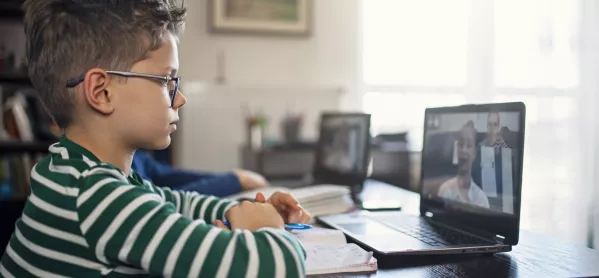There has been a lot said on when schools should return: how soon can we reopen, how it should be handled, can we social distance pupils, could we open throughout the summer to help pupils catch up…
It’s understandable - we all want that sense of structure back and this would provide that to millions of families.
But does anyone who’s weighing in on these matters really know enough to make such strident claims about what would be best for children on such a weighty issue?
I know I don’t know enough. I don’t understand enough about the epidemiology, I don’t have the expertise in interpreting the data, and I don’t really know what is safe for schools to be doing. It would suggest many others don’t either.
As such, it seems clear that if you don’t really understand a situation, then your opinions are best kept to yourself. Advice that Lord Adonis might want to consider in future.
What’s more is that all this conjecture over school reopening dates is ignoring a much bigger issue: children’s learning levels and the impact that so much time out of school will have had.
Unseen differentiation
The trouble with this is that usually approaches to learning - including remote learning - are delivered in a system where all pupils’ experiences are broadly similar.
Even though we know that life outside of school is not like that for our pupils, we can work to iron out those differences in numerous ways. Pupils wear similar uniforms, work in similar classrooms with similar resources to a similar timetable, with broadly similar expectations.
However, we also know already that when differences grow too large, it can be very hard to close these gaps.
And yet we’re working in circumstances where differences are inevitable, and those differences will continue to be an issue whenever we begin to return - perhaps more so if the return to school is staggered for different groups.
The obvious difference will be in the quality of what has been learned during the closure period. No matter how good the offer from schools, we know that all children will have had different opportunities to access to home learning, whether that’s because of technology, other resources, or simply for the want of a quiet space.
What’s more, children will have had different broader experiences while at home during the closures. For some, it will have provided valuable time with the broader family, participating in a range of activities - both those set by school and those chosen by parents - that have strengthened and broadened their education.
For others, it will have been weeks stuck in too small a space for a large family, with limited opportunities for experiences, and worries instead about money to feed the family or pay the bills.
Loss of structures
Family life, too, will have been affected and will affect pupils in different ways both before pupils return and once school life returns to normal.
Many children will not have seen grandparents and other family members for some time, but for some they will have lost loved ones altogether while schools were closed.
For many, grandparents who were previously main carers after school will be shielding themselves for some months to come, and so families will be struggling to find new arrangements for care of their children.
There will be households who have been living on reduced incomes for some time, including those who have lost jobs completely, or who are coming to terms with new jobs - perhaps with lower salaries or more unsociable hours.
The impact of that is likely to continue for several months after schools begin to reopen, and will continue to affect lives in school.
We keep hearing about a “new normal”, and I’ve no idea yet what that will mean in terms of life in school, but there is no doubt that one of the greatest challenges for returning schools won’t be reshaping the curriculum or what Ofsted thinks.
Instead, it will be finding out how children’s lives have been affected by this strange experience and putting in all the extracurricular work that goes into preparing children for learning.
I really hope that will feature in government plans for reopening schools - whenever that may be.
Michael Tidd is headteacher at East Preston Junior School, in West Sussex. He tweets @MichaelT1979




